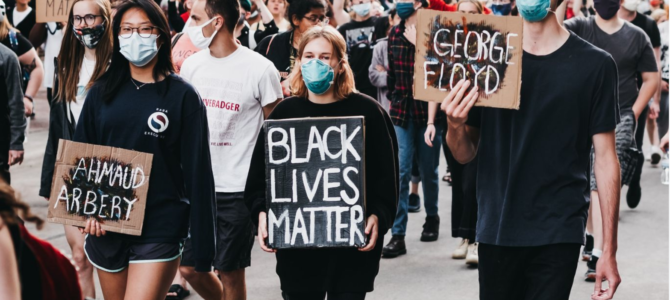The riots in the wake of George Floyd’s killing have been decried by some black leaders, but you wouldn’t know it from listening to the media.
L. Joy Williams, president of the Brooklyn NAACP, tweeted Saturday, “I know that our anger and frustration is real. I feel it myself and I know it exists in my community and in Black people across this country. But my gut is telling me that something nefarious is going on here.”
Sherrilyn Ifill, president of the NAACP legal defense fund also tweeted: “Seeing some troubling clips. I hope that someone is putting together the clips of incidents from the various protests that appear to be perpetrated by ppl who are not protesting police violence but appear to have different motives and agendas.”
Read into their comments what you will — criticisms of Antifa or others — these voices have been effectively silenced. If only I had a dollar this week for every time a white social media influencer argued the riots are justified, or for every time a blue check mark begged their peers to acknowledge their privilege and fight broad-brush “systemic racism.”
Maybe I live in a particularly woke bubble. As the mother of two black children, I purposely follow other interracial families on social media to learn from their experiences. I also live in Waco, Texas, a place desperately hoping to overcome a deeply racist history. I am thoroughly surrounded by voices supporting rioters and bidding others to confess their privilege.
What I find in the place of overt racism, however, is aggressive paternalism. It is stunning to hear both public figures and my friends in the suburbs speaking sympathetically of the rioters. Arguing that black rioters or looters should be held to a lower standard than other Americans because of “black anger” is so patently racist, it confounds me.
“People didn’t cause the riots, the system did,” is a sentiment that denies agency. Statements denying that the African Americans rioting in Minneapolis, Oakland, and Atlanta have the will to make their own choices should shock us with their dehumanization. Yet these sentiments have gone positively viral thanks to the woke warriors of our time.
Worse still, these woke saviors draw attention away from the questions that ought to be asked about, say, police procedures. For example, the Military Times surveyed police departments across the United States and found that more than half give preference to applicants from the military. Another 2017 study of Miami and Boston police departments found that officers with military backgrounds were more likely to have a use-of-force complaint filed against them.
I am grateful to military veterans for their sacrifices. I’m not convinced, however, that a deployment to a battlefield in Fallujah translates well into policing the streets of American cities. While both are guardians of law and order, their approaches are different.
What happens to applicants who are not from military backgrounds? At least one police department in my area assigns non-military applicants to “do time” as correctional officers in prisons, a prerequisite to patrolling. What is it like for a correctional officer who guards known cartel members in prison, for instance, and then is reassigned to police a Hispanic neighborhood? Is that really a seamless transition?
These questions don’t deny that society needs law enforcement; they don’t imagine a progressive utopia wherein we can somehow survive without police. But these are the kind of practical policy questions we must be asking our local officials.
Instead, what’s popularly labeled “progress” is a repackaged white man’s burden. A white friend once told me she discusses race with her children “daily” because it’s the responsibility of having privilege. Never mind that exalting race to a daily catechesis might in fact serve to teach children that race is a fundamental factor in human worth — which is the very definition of racism. Elsewhere, I’ve seen the call for white people to “elevate black voices,” incidentally forging a new form of white saviorism. Paternalism is everywhere.
I am committed to anyone who will make America a more just place for my children to live. Like many Americans, I am hungry for it. It’s time for concrete efforts to end police brutality, rather than virtue-signaling social media campaigns. Point out bad policies. Propose solutions.
Some of us want to listen.









